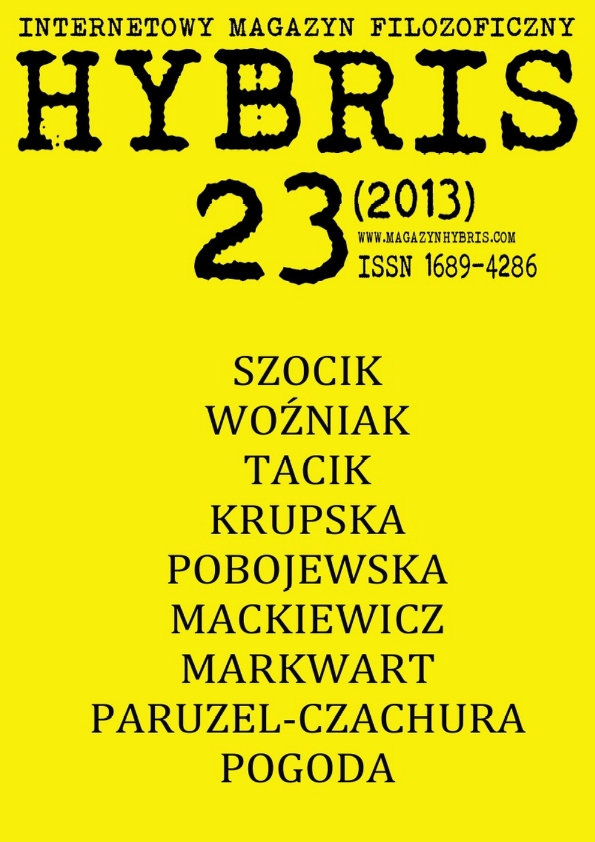NEGATYWNOŚĆ JAKO SEFIRA SUROWEGO SĄDU MIESZCZAŃSTWA. FAUST I HIOB
NEGATIVITY AS THE SEPHIRAH OF RIGOROUS JUDGMENT OF THE BOURGEOISIE. FAUST AND JOB
Author(s): Przemysław TacikSubject(s): Metaphysics, Jewish Thought and Philosophy, Sociology of Religion, Ontology
Published by: Wydawnictwo Uniwersytetu Łódzkiego
Summary/Abstract: The paper, drawing upon Kabbalistic inspirations, aims at constructing a philosophical model of the bourgeoisie. Many a time motifs from Jewish tradition have been grafted onto contemporary philosophy in order to explicate the metaphysical situation of modernity. Following these intuitions, the article applies the idea of the fifth Sephirah, Gevurah, i.e. “restraint” — simultaneously doubling as Din, “judgment” — to analyse the structure of being in the ontology of modernity. The nature of the fifth Sephirah proves paradoxical: it represents the power of being, based on the inherent constraint separating a thing from exteriority — as well as the power of destruction, which unites the being with the rest of reality. Therefore, the Gevurah-Din concept allows of devising a being whose mere existence springs from a central void which provides its singularity and, simultaneously, linkage with reality. The paper presents the nature of the bourgeoisie as conditioned by negativity. The bourgeois are constantly tempted by its power, yet build their identity reactively, striving for artificial stability. The iconic bourgeois lifestyle of the ruthless merchant at work and disinterested culture consumer at home, embodies this dualism. The bourgeois culture is dead throughout, as it serves only to constrain the negativity. The bourgeoisie is, however, subjected to a constant risk of imbalance, “seduction” by its innermost dark side. This construction is equally responsible for the archetypal modern hero, Faust, who chases its central void by ruining the world around him. Finally, the article juxtaposes two characters: Faust and Job, in order to give a Jewish answer to modern misery. Both Faust and Job suffer from the power of judgement, yet Faust obtains a sentence that merely reveals its void which has always propelled him. The existence of Job, on the contrary, is not equal to void — Job survives as the just.
Journal: Internetowy Magazyn Filozoficzny HYBRIS
- Issue Year: 2013
- Issue No: 23
- Page Range: 28-55
- Page Count: 28
- Language: Polish

